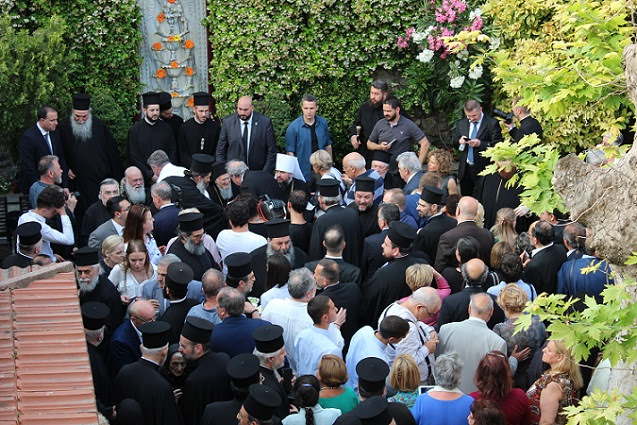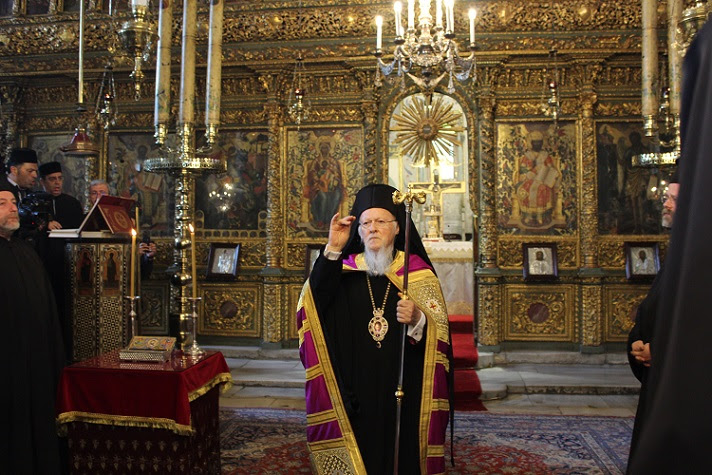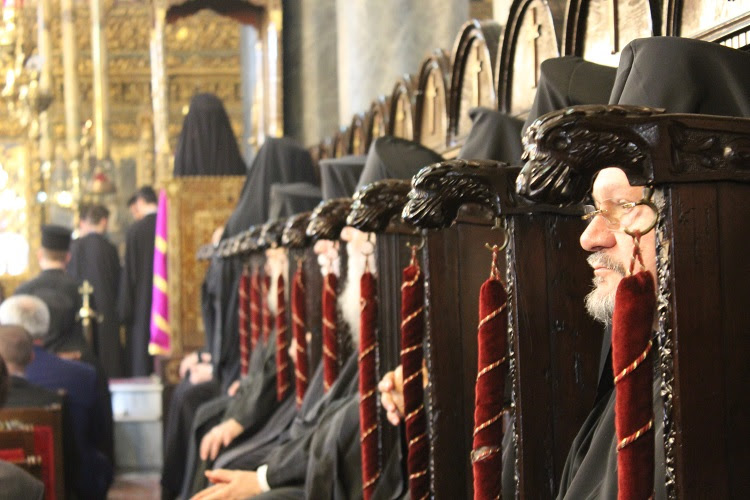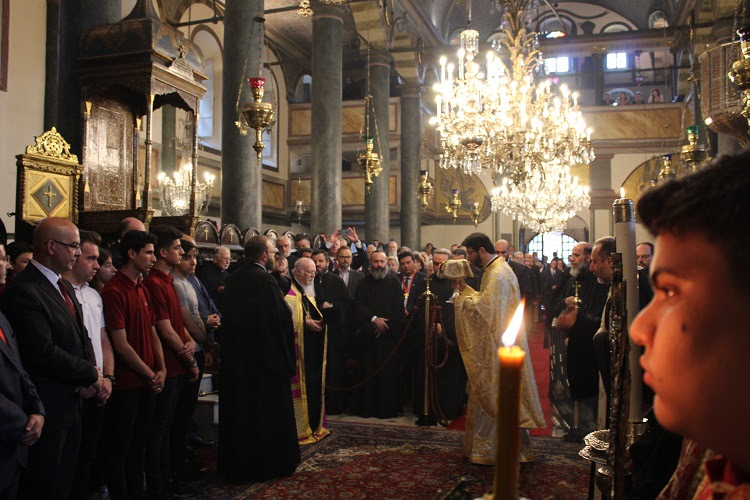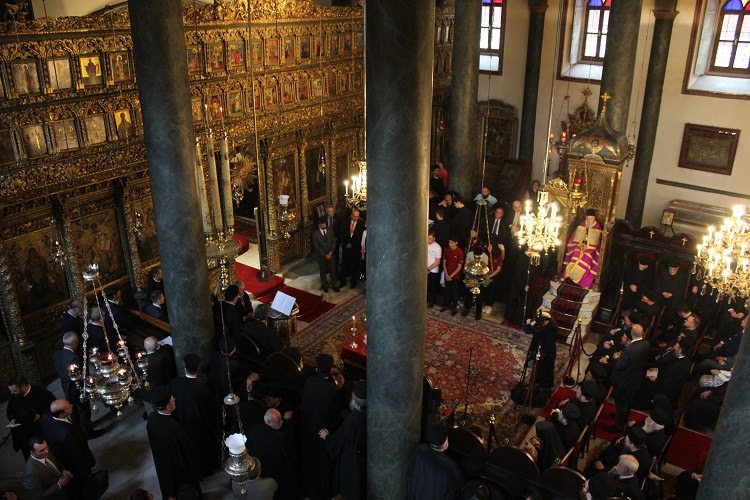Apostle Bartholomew and Patriarch Bartholomew: Riches through Poverty
26 June 2019Go, Christ directed His disciples, to proclaim the Kingdom of God. This charge is well known, but what is often less cited are Christ’s complimentary instructions: “Take nothing for the journey, neither staffs nor bag nor bread nor money; and do not have two tunics apiece” (Luke 9:3).
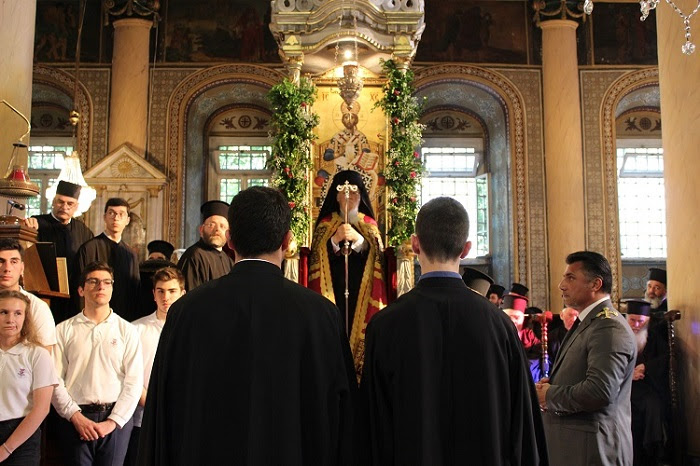
The importance of not being beholden to earthly things – and to learn dependence on God – is a recurring theme throughout the Gospels and Epistles of the New Testament.
St. Paul writes to the Corinthians, “For I determined not to know anything among you except Jesus Christ and Him crucified” (1Co 2:2).
These messages are especially needed in today’s society, which is overwhelmed by consumerism and earthly things. The tragedy of overconsumption manifests itself in harmful ways and leads many down dangerous roads, be it physically, emotionally (especially through the obsession to and disappointment in social media usage), ecologically and of course spiritually, where we know everything except Christ crucified.
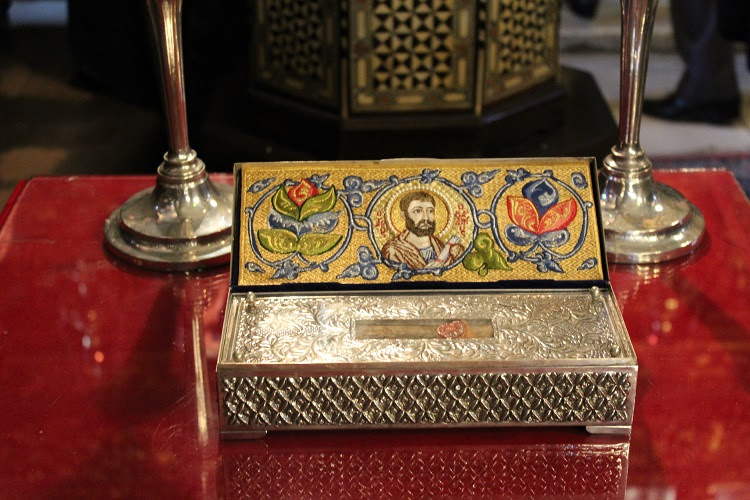
In stark contrast, the manifestation of a “riches through poverty” ethos was what I experienced on my recent trip to the Phanar for the Name Day of His All-Holiness Ecumenical Patriarch Bartholomew.
There I witnessed firsthand through the person of the Ecumenical Patriarch what it means to have nothing, yet to have everything. To be last, yet be first: “If anyone desires to be first, he shall be last of all and servant of all” (Mark 9:35).
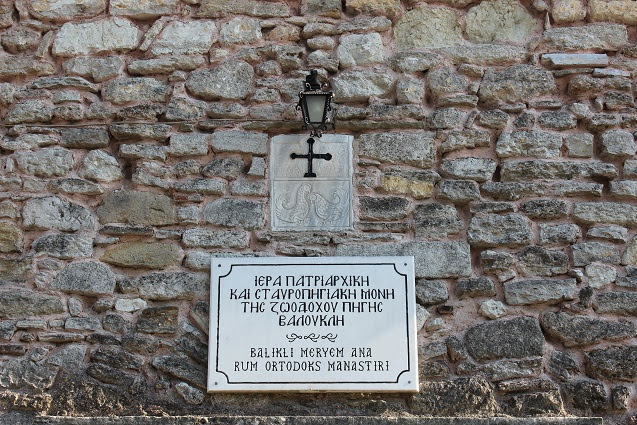
It is the venerable, historic, and unwaning backbone of the One, Holy, Catholic, and Apostolic Church… the First Throne of Orthodoxy… the Great Church of Christ (η Μεγάλη του Χριστού Εκκλησία)… where the tradition of the Fathers – inherited from the Apostles, including the Holy Apostles Bartholomew and Barnabas whose memories were celebrated during my visit, together with Andrew the First-called Apostle who is the founder of the Church of Constantinople – is alive and infused with the Spirit of Christ, with the spirit of humility, of service, of sacrifice, of love for all.
It is the person of His All-Holiness who, imitating the disciples of Christ, proclaims the Kingdom of God, taking nothing for the journey. His humility and the riches through poverty of the Ecumenical Patriarchate attract people to him and it, respectively.
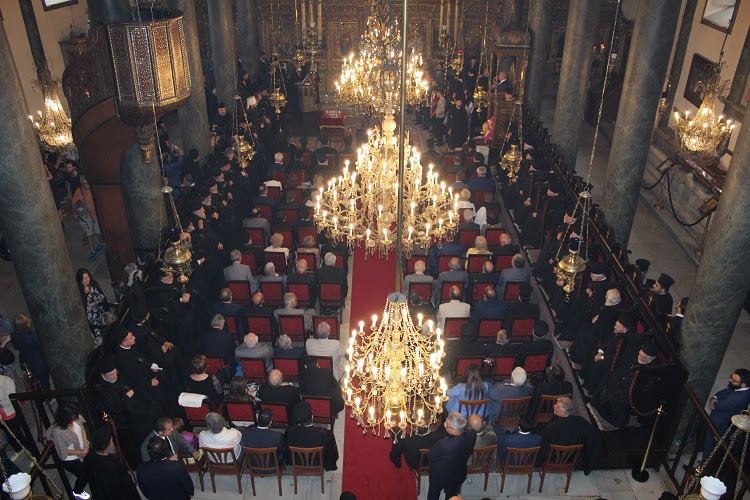
At both Great Vespers, which was held at the Monastery of Zoodochos Pege (Baloukli), and during the Divine Liturgy at the Patriarchal Church of St. George the Great Martyr, hundreds upon hundreds of faithful from around the world from different ecclesiastical jurisdictions came to celebrate and receive the blessing of His All-Holiness.
They came to Turkey, to the Queen of Cities, Constantinople, where the skyline is filled not with Christian crosses but with Muslim minarets, because the spirit of humility, service, sacrifice, and love permeates throughout the Patriarchate and guides those who call it home with an unbridled sense of service to Christ and His Church.
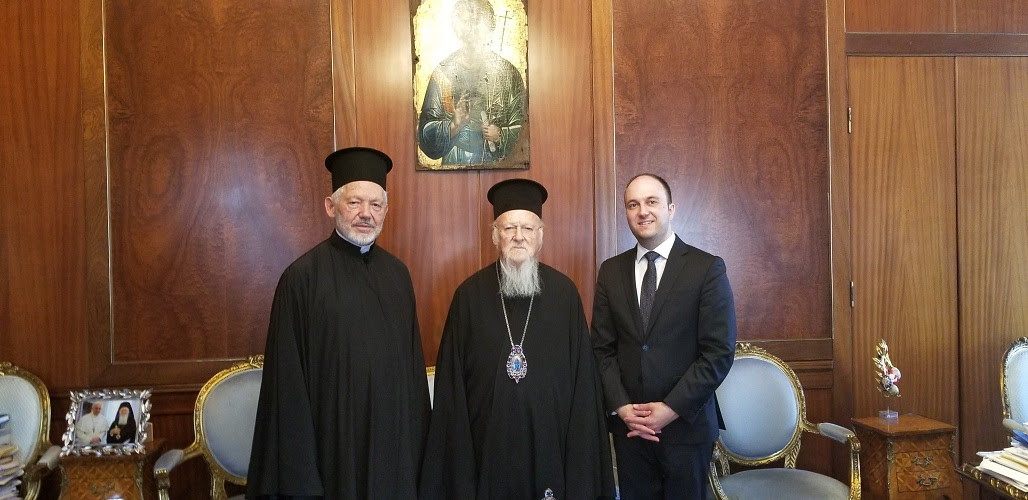
I witnessed firsthand, at different church services and events, the ethos — the ecclesiastical phronema — that guides those who serve Orthodoxy from the Phanar.
This is in part the outcome of centuries of testing the Patriarchate’s steel of faith through many fires of temptation. It is in and around Constantinople where the Ecumenical Councils were held. And it is these Councils and the God-bearing fathers who participated in them who bestowed certain canonical rights and privileges upon the Church of Constantinople.
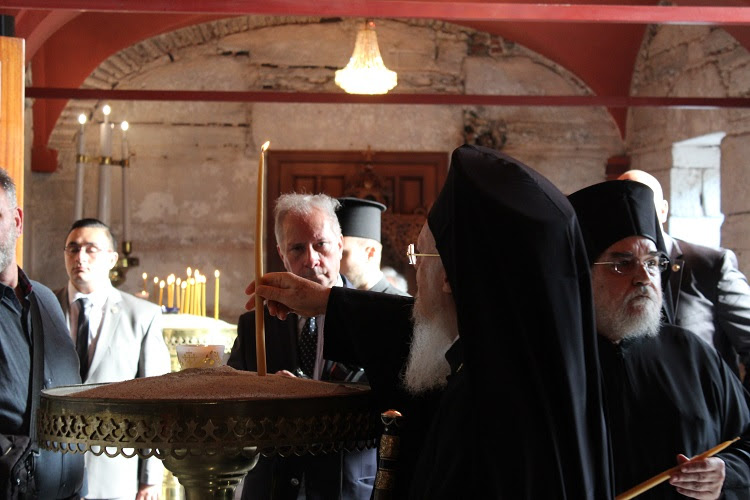
This ecclesiastical phronema is also due in part because the Church of Constantinople is not attached to earthly things. It is not beholden to special financial interests. It does not diminish its self-worth or dignity awaiting third party handouts. Its (relative) poverty makes the Phanar free.
In turn, this freedom allows His All-Holiness to behave and take decisions that are in the best interests of the Church. It is His All-Holiness who has been called upon time and time again to mediate and resolve intra-Orthodox disagreements and squabbles.
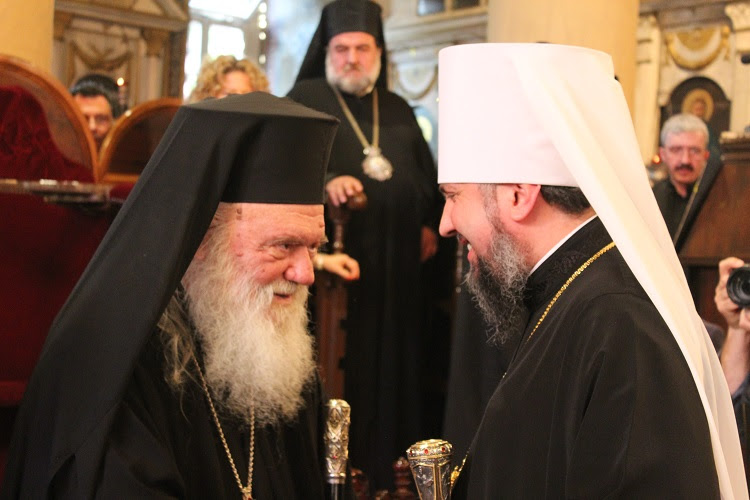
And it is His All-Holiness, despite immense pressure from the Moscow Patriarchate (which continues unabated towards the other local Orthodox churches), who dared to take decisive action in order to heal the multi-decade schism in Ukraine. Like a good shepherd imitating the Apostle Bartholomew, he opened the doors of the canonical Church to millions of Orthodox faithful in Ukraine.
There are no blackmails or threats that can be effectively targeted against the Ecumenical Patriarch. All such efforts are doomed to failure because at the Phanar, as I witnessed, all that is known is riches through poverty and Christ Crucified.
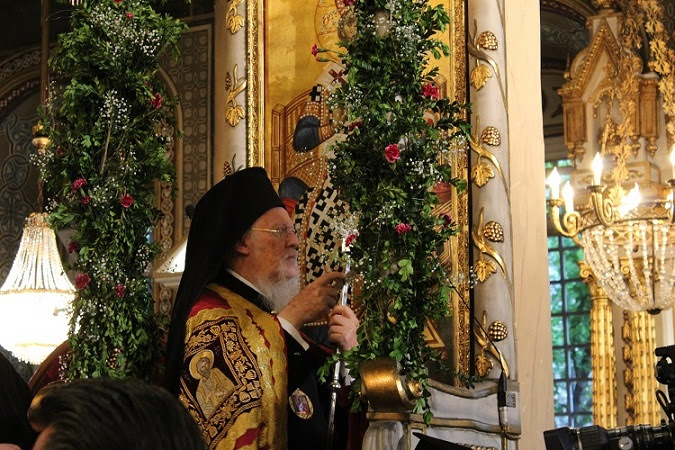
We close with a short quote from the 1991 enthronement speech of Ecumenical Patriarch Bartholomew, which most appropriately describes his tenure as Archbishop of Constantinople-New Rome and Ecumenical Patriarch:
“We take up the cross of Andrew, the First-called, to continue the ascent toward Golgotha, that we may be crucified in the Lord and in His crucified Church to perpetuate the light of the Resurrection.”
